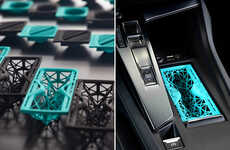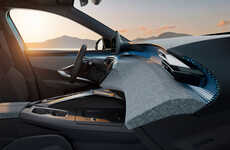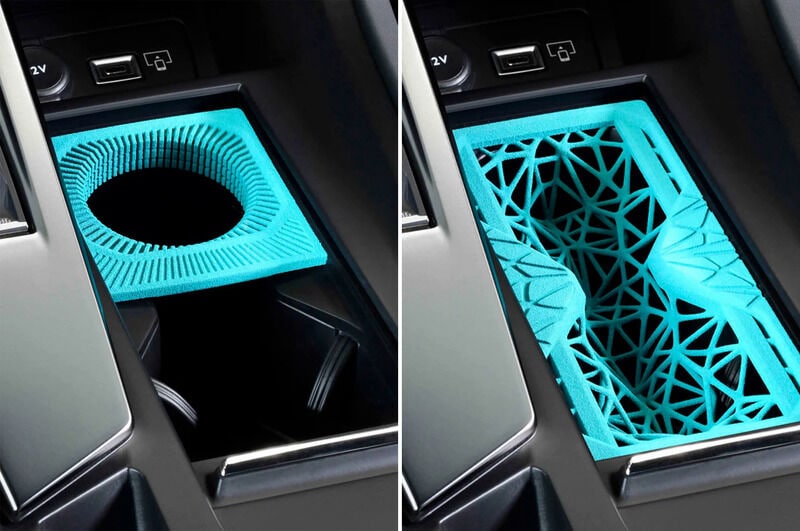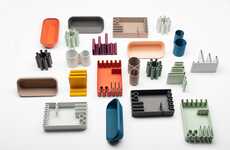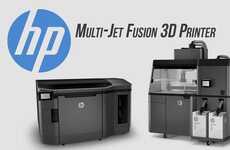
Peugeot Developed Storage Inserts for its 308 Models
Elena Rahman — March 29, 2022 — Autos
References: peugeot & yankodesign
Peugeot, a French automobile brand known for its unique catalog of well-made cars, launched a series of flexible storage inserts for its 308 car models. The inserts are 3D-printed from flexible filament using innovative printing technology. The 308 series is an update on the brand's 30008 SUV, which features a smaller and sportier look with additional storage aspects.
The storage compartments include sunglasses holders, cup holders, and phone and cardholders. Each storage insert fits into the 308's center console. Peugeot teamed up with HP Inc, Mader, and ERPRO to 3D-print the line of accessories using the new HP Multi Jet Fusion printer technology. The goal is to "make accessories more visible and attractive by innovating and using modern materials."
Image Credit: Peugeot
The storage compartments include sunglasses holders, cup holders, and phone and cardholders. Each storage insert fits into the 308's center console. Peugeot teamed up with HP Inc, Mader, and ERPRO to 3D-print the line of accessories using the new HP Multi Jet Fusion printer technology. The goal is to "make accessories more visible and attractive by innovating and using modern materials."
Image Credit: Peugeot
Trend Themes
1. 3d-printed Car Accessories - The use of 3D printing technology to create customizable storage and other car accessories presents an opportunity for disruptive innovation in the automotive industry.
2. Flexible Filament Printing - The development of flexible filament materials and printing technology offers potential for disruptive innovation in the production of a wide range of products beyond just car accessories.
3. Collaborative Printing Partnerships - Partnerships between 3D printing technology providers, like HP Inc, and manufacturers present opportunities for disruptive innovation in various industries by enabling more affordable and efficient production of customized products.
Industry Implications
1. Automotive - The use of 3D printing technology to produce customizable car accessories has disrupted the traditional automotive accessory market.
2. Manufacturing - The development of flexible filament materials and printing technology has disrupted traditional manufacturing techniques, allowing for the production of more complex and customizable products.
3. Technology - Partnerships between 3D printing technology providers and manufacturers have the potential to disrupt the traditional supply chain and production process in a variety of industries beyond just automotive and manufacturing.
5.7
Score
Popularity
Activity
Freshness


